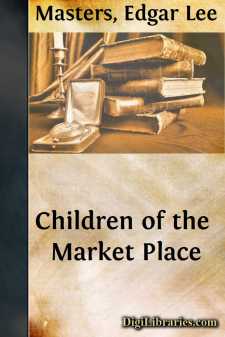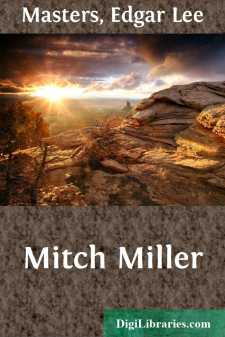Categories
- Antiques & Collectibles 13
- Architecture 36
- Art 48
- Bibles 22
- Biography & Autobiography 813
- Body, Mind & Spirit 141
- Business & Economics 28
- Children's Books 12
- Children's Fiction 9
- Computers 4
- Cooking 94
- Crafts & Hobbies 4
- Drama 346
- Education 46
- Family & Relationships 57
- Fiction 11826
- Games 19
- Gardening 17
- Health & Fitness 34
- History 1377
- House & Home 1
- Humor 147
- Juvenile Fiction 1873
- Juvenile Nonfiction 202
- Language Arts & Disciplines 88
- Law 16
- Literary Collections 686
- Literary Criticism 179
- Mathematics 13
- Medical 41
- Music 40
- Nature 179
- Non-Classifiable 1768
- Performing Arts 7
- Periodicals 1453
- Philosophy 64
- Photography 2
- Poetry 896
- Political Science 203
- Psychology 42
- Reference 154
- Religion 513
- Science 126
- Self-Help 83
- Social Science 81
- Sports & Recreation 34
- Study Aids 3
- Technology & Engineering 59
- Transportation 23
- Travel 463
- True Crime 29
Children of the Market Place
Categories:
Description:
Excerpt
I was born in London on the eighteenth of June, 1815. The battle of Waterloo was being fought as I entered this world. Thousands were giving up their lives at the moment that life was being bestowed upon me. My father was in that great battle. Would he ever return? My mother was but eighteen years of age. Anxiety for his safety, the exhaustion of giving me life prostrated her delicate constitution. She died as I was being born.
I have always kept her picture beside me. I have always been bound to her by a tender and mystical love. During all the years of my life my feeling for her could not have been more intense and personal if I had had the experience of daily association with her through boyhood and youth.
What girlish wistfulness and sadness there are in her eyes! What a gentle smile is upon her lips, as if she would deny the deep foreboding of a spirit that peered into a perilous future! Her dark hair falls in rich strands over her forehead in an elfin and elegant disorder. Her slender throat rises gracefully from an unloosened collar. This picture was made from a drawing done by a friend of my father's four months before I was born. My old nurse told me that he was invalided from the war; that my father had asked him to make the drawing upon his return to London. Perhaps my father had ominous dreams of her ordeal soon to be.
They pronounced me a fine boy. I was round faced, round bodied, well nourished. The nurse read my horoscope in coffee grounds. I was to become a notable figure in the world. My mother's people took me in charge, glad to give me a place in their household. Here I was when my father returned from the war, six months later. He had been wounded in the battle of Waterloo. He was still weak and ill. I was told these things by my grandmother in the succeeding years.
When I was four years old my father emigrated to America. I seem to remember him. I have asked my grandmother if he did not sing "Annie Laurie"; if he did not dance and fling me toward the ceiling in a riot of playfulness; if he did not snuggle me under my tender chin and tickle me with his mustaches. She confirmed these seemingly recollected episodes. But of his face I have no memory. There is no picture of him. They told me that he was tall and strong, and ruddy of face; that my beak nose is like his, my square forehead, my firm chin. After he reached America he wrote to me. I have the letters yet, written in a large open hand, characteristic of an adventurous nature. Though he was my father, he was only a person in the world after all. I was surrounded by my mother's people. They spoke of him infrequently. What had he done? Did they disapprove his leaving England? Had he been kind to my mother? But all the while I had my mother's picture beside me. And my grandmother spoke to me almost daily of her gentleness, her high-mindedness, her beauty, and her charm.
I was raised in the English church. I was taught to adore Wellington, to hate Napoleon as an enemy of liberty, a usurper, a false emperor, a monster, a murderer. I was sent to Eton and to Oxford. I was indoctrinated with the idea that there is a moral governance in the world, that God rules over the affairs of men. I was taught these things, but I resisted them. I did not rebel so much as my mind naturally proved impervious to these ideas. I read the Iliad and the Odyssey with passionate interest. They gave me a panoramic idea of life, men, races, civilizations....




